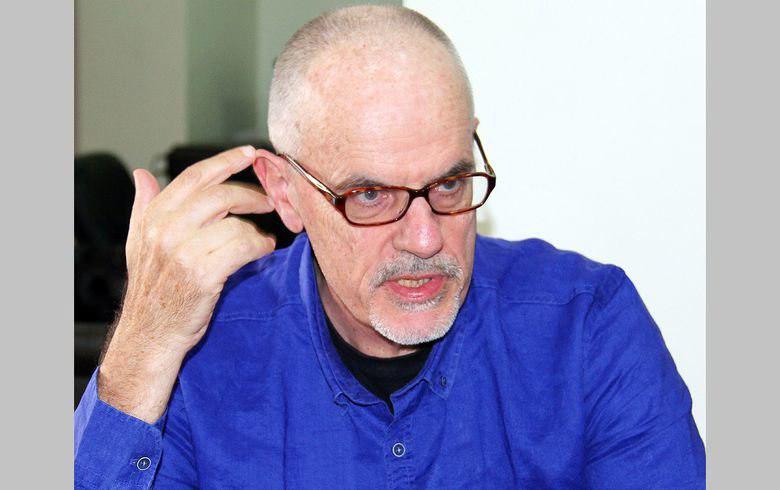
ISIS has proved a useful tool to Washington so far: Academic

"It has proved a useful tool to Washington so far, including for the creation of foreign military bases in Syria and as the pretext for ongoing US military presence in the entire region,” Professor Tim Anderson, a lecturer of political economy at the University of Sydney, said in an interview with the Basirat.
"Iraq's Popular Mobilization Forces (Hashed al-Shaabi) have played a heroic role in recovering Iraqi territory and dignity. They have continued this effort through cooperation with the Syrian Arab Army in Iraq's western border areas,” he noted.
Tim Anderson is an Australian political economist and author. He is a senior lecturer at the University of Sydney. Anderson has degrees in economics and international politics, and a doctorate on the political economy of economic liberalisation in Australia. His recent book is "The Dirty War on Syria: Washington, Regime Change and Resistance" that published by Global Research in 2016.
The following is the full text of the interview:
Basirat: Please explain your view about the situation of Iraq after the liberalization of Mosul? What's next for Mosul after its liberation from ISIS?
Anderson: In my view the key Iraqi challenge after the liberation of Mosul is for the government to re-assert some independent political will particularly in face of the former occupying power, which simply does not want to go away.
Iraqi people and security forces have made great sacrifices to come this far, after being humiliated and re-invaded by proxy armies. Now that sacrifice should be honored and consolidated by the actions of a dignified state and government, especially in the areas of independent security, territorial integrity and control of national resources.
Basirat: What will be the America strategies in Iraq after the liberalization of Mosul? In your opinion will ISIS be preserved? Kindly explain.
Anderson: Washington has already made it clear it does not want to retreat from Iraq, even after DAESH is crushed. After all, that terrorist group was created more than a decade ago, through al Saud, precisely to weaken Baghdad and to prevent Iraq getting close to its neighbors, particularly Iran.
Although DAESH is now being destroyed in both Iraq and Syria, the group can persist in more limited areas, if its sponsors keep funding and arming it.
It has proved a useful tool to Washington so far, including for the creation of foreign military bases in Syria and as the pretext for ongoing US military presence in the entire region.
A lack of political will in Baghdad would allow mercenary groups to thrive and undermine genuine national policy.
Basirat: Will US plans change about Iraqi Kurdistan after the liberalization of Mosul?
Anderson: After the liberation of Mosul - and with the demise of DAESH in Syria - the US has a strong motivation to persist with its 'Kurdish card' if it cannot have a pseudo-Sunni caliphate to divide the region, a pseudo-Kurdish state is next best, from their point of view (even though this will be resented and resisted by the Erdogan government, as Turkey has the largest Kurdish population).
Carving a slice from northern Iraq would be a great blow to the Iraqi nation, whatever its other problems and shortcomings the US seems also to be working towards a Kurdish zone in Syria, but this is harder because Damascus was never weakened as much as Baghdad.
Kurdish forces in Syria, which for the most part have had no conflict with the Syrian Arab Army, seem far more likely to cut a deal with Damascus over cultural protection within a unified Syria.
Basirat: And last question is about Popular Mobilization Forces; what role did it play in this battle? And what will be its role in the future of Iraq?
Anderson: Iraq's Popular Mobilization Forces (Hashed al-Shaabi) have played a heroic role in recovering Iraqi territory and dignity. They have continued this effort through cooperation with the Syrian Arab Army in Iraq's western border areas.
Their loyalty and firmness in the battle against DAESH seems to foreshadow a role in strengthening the Iraqi nation.
We thank you for taking time out to answer our question. We appreciate you taking the time to respond personally to us.















